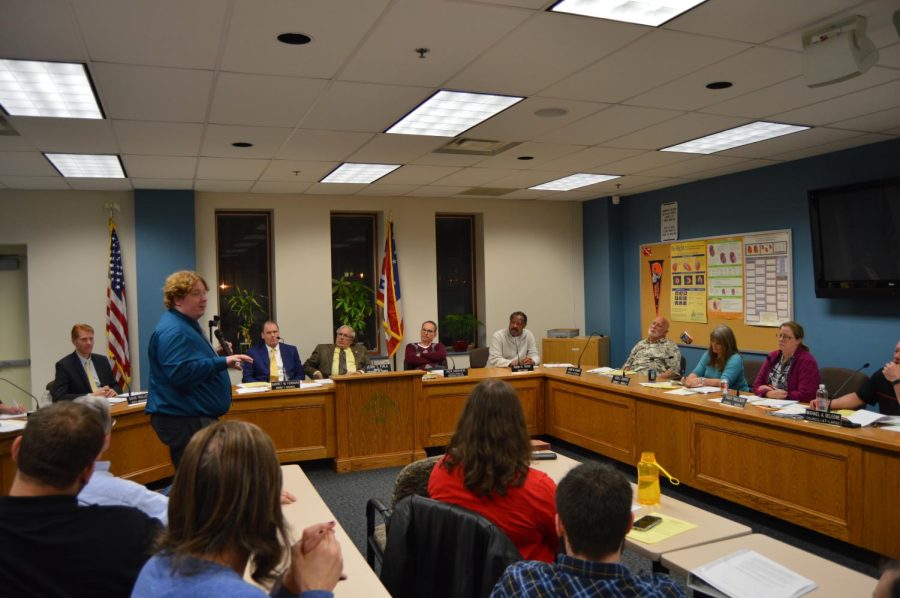Kent City Council approves LGBTQ protection ordinance
University of Akron law student Adam Gluntz speaks to Kent City Council members at a council meeting on Wednesday.
April 5, 2017
Kent City Council agreed to adapt an ordinance that protects citizens from discrimination based on sexual orientation and gender identification in a unanimous vote Wednesday.
The vote came three years after councilman John Kuhar brought it up for discussion in a 2014 council meeting. At the time, the focus was on ensuring housing ordinances protected LGTBQ citizens in the same way they protect everyone based on gender, familial status and race.
“I want anybody to feel like they can go into any house in our community,” Kuhar said at the Wednesday meeting.
The vote was originally meant to address housing ordinance verbiage only, but the council expanded the vote to include all city legislature mentioning discrimination after a suggestion from councilwoman Tracy Wallach.
“We were surprised that they took the lead on that,” University of Akron law student Adam Gluntz said. “We thought we were going to have to coax them into it with just the housing ordinances first.”
Gluntz came to the council meeting today to provide background on Akron’s passing of its LGBTQ protection ordinance.
“It’s obvious this class of people needs to be protected just like the rest of them,” Wallach said, referencing the social classes already mentioned in current laws and ordinances.
Junior political science major M.J. Eckhouse is a member of Kent 4 Equality and met with council members individually prior to Wednesday’s vote.
Based on his meetings with the members, Eckhouse said they were more concerned with potential legal action being taken against Kent should they enforce the proposed change to city ordinances.
“It was not so much policy focused,” Eckhouse said. “It was more about the city’s liability.”
Eighteen different communities in Ohio have taken similar steps to include LGBTQ protection in their legislature. The latest communities to do so were Akron and Olmstead Falls that passed similar motions just last week.
“The state is not quite ready to protect its LGBTQ citizens,” Trans*Fusion president Alice Freitas said to the council. “I want you to know that it is important to the community at-large.”
“(If homeowners are) hearing from their own community that this is wrong,” Gluntz said. “It might sound better than coming from Washington or Columbus.”
As it stands, Ohio is one of 32 states that still do not have clear protections for LGBTQ people.
“It’s a good step towards equality,” Eckhouse said. Still, he wants there to be specific penalties for those who do discriminate based on sexual orientation or gender identification. He said that he would also like to see the committee that enforces these laws to get educated on the LGBTQ community.
Nicholas Adkins is a contributor, contact him at [email protected].












